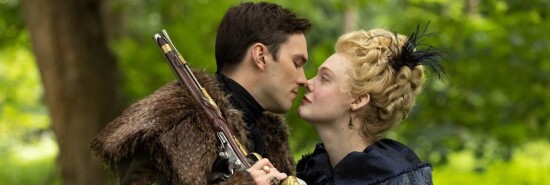
The Great is a clever satire on power and Russian history
Harry Khachatrian
Video Embed
Australian playwright and filmmaker Tony McNamara’s historical satire The Great returned last month to Hulu and Amazon Prime for its third season. Set against the opulent and extravagant backdrop of 18th-century Russia, this unique blend of comedy and drama resumes the turbulent narrative of Catherine the Great’s ascension to power. With Elle Fanning brilliantly portraying the young empress, the show continues to balance wit and ruthlessness along Catherine’s journey as she navigates the challenges of ruling in a male-dominated court.
Following the tumultuous events of the show’s first two seasons, which centered on Catherine’s military coup to oust her boorish husband, Peter II (portrayed by Nicholas Hoult), the latest chapter is set in its aftermath. The new season delves deeper into the myriad challenges Catherine faces as she seeks to extricate the monarchy from years of tyranny. Her ambitious attempt to introduce Enlightenment principles and progressive democratic ideals to a deeply traditional society forms the crux of this absorbing narrative.
CONGRESS CAN DO MORE TO PREVENT MEGAFIRES
Amid a chorus of resistance, Catherine strives to reform Russia, a task made even more complex by her chaotic relationship with Peter. After a dramatic incident at the end of the second season in which Catherine mistakenly unleashes a stabbing frenzy on Peter’s look-alike instead of her husband, they enter couples therapy in the hope of reconciling their fraught love.
Peter, on the other hand, grapples with the weighty legacy of his family, particularly the looming shadow of his father, Peter the Great. On the one hand, the legend of his forebear haunts him, urging him to rule Russia as a warlord. On the other, he tries to reconcile these heavy obligations of the past with his wife’s idealistic vision for a future devoid of bloodshed and despotism. As he attempts to raise his son Paul, the burden of this lineage becomes a central challenge.
The series offers a remarkable evolution of both characters. Peter transforms from a simple-minded brute, incapable of empathy, into a loving husband and father (albeit one who occasionally commits murder on a whim). Catherine, meanwhile, evolves from a naive romantic into a calculating and resourceful leader, adept at navigating the intricacies of power and reform.
In an early episode, Catherine exudes her newfound shrewdness, successfully negotiating bilateral treaties with Britain and America amid the then-raging Revolutionary War. Leveraging her disarming charm, she plays those around her like pawns. Well-versed in the manipulative nature of politics, she reluctantly befriends Archie (Adam Godley), the head of the Russian church and the foremost adversary of her modernist ideals, and she even keeps close friends such as Marial (Phoebe Fox) at a distance, isolating herself. But despite her ambitions, such as unilaterally ending serfdom and slavery across Russia, even as an absolute ruler, legislatively, she achieves little more than designating each Russian village with its own monkey — a comical idea Peter pitched her.
Undeterred, Catherine made bold attempts to introduce reforms across Russia, including an ambitious initiative to abolish serfdom — and later, even murder. However, these attempts were met with stiff resistance as the Russian people, unaccustomed to a life beyond servitude (and beyond settling their differences through killing each other and their neighbors), were not prepared for such sweeping changes.
In his seminal 2004 book, The Case for Democracy, Soviet dissident Natan Sharansky made a distinction between what he termed “free societies” and “fear societies.” He outlined key elements such as independent courts, the rule of law, a free press, freely elected governments, meaningful opposition parties, and human rights organizations as essential to the respect of human rights, elements which were notably absent in fear societies.
History is replete with instances of democratic ideals being prematurely imposed upon societies not yet ready for the responsibilities and uncertainties inherent in self-determination. The Great artfully portrays Catherine’s struggle to introduce such reforms in Russia, reflecting not only the challenges of her era, but the timeless struggle of any society grappling with change. This blend of biting satire and historical drama showcases the stark contrast between cultural grandeur and political realities, capturing the persistent dichotomy that has long defined Russia’s history and continues to plague its present.
CLICK HERE TO READ MORE FROM THE WASHINGTON EXAMINER
Harry Khachatrian (@Harry1T6) is a film critic for the Washington Examiner’s Beltway Confidential blog and a computer engineer in Toronto, pursuing his MBA.
